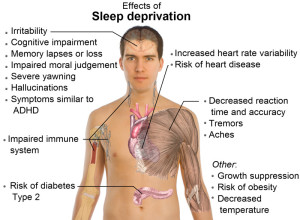 Insomnia, the most common sleep disorder, affects up to one-third of the population in the United States. In new findings, researchers from Brigham and Women’s Hospital (BWH) have found that some insomnia symptoms are associated with an increased risk of mortality in men. These findings are published online in Circulation and will appear in an upcoming print issue.
Insomnia, the most common sleep disorder, affects up to one-third of the population in the United States. In new findings, researchers from Brigham and Women’s Hospital (BWH) have found that some insomnia symptoms are associated with an increased risk of mortality in men. These findings are published online in Circulation and will appear in an upcoming print issue.
“Insomnia is a common health issue, particularly in older adults, but the link between this common sleep disorder and its impact on the risk of death has been unclear,” said Yanping Li, PhD, a research fellow in the Channing Division of Network Medicine at BWH and lead author of the paper. “Our research shows that among men who experience specific symptoms of insomnia, there is a modest increase risk in death from cardiovascular-related issues.”
Specifically, researchers report that difficulty falling sleep and non-restorative sleep were both associated with a higher risk of mortality, particularly mortality related to cardiovascular disease.
Researchers followed more than 23,000 men in the Health Professionals Follow-Up Study who self-reported insomnia symptoms for a period of six years. Beginning in 2004 through 2010, researchers documented 2025 deaths using information from government and family sources. After adjusting for lifestyle factors, age and other chronic conditions, researchers found that men who reported difficulty initiating sleep and non-restorative sleep had a 55 percent and 32 percent increased risk of CVD-related mortality over the six year follow up, respectively, when compared to men who did not report these insomnia-related symptoms.
“We know that sleep is important for cardiovascular health and many studies have linked poor or insufficient sleep with increased risk factors for cardiovascular-related diseases,” said Xiang Gao, MD, PhD, a researcher in the Channing Division of Network Medicine at BWH and Harvard School of Public Health and senior author of this study. “Now we know that not only can poor sleep impact disease risk, but it may also impact our longevity. While further research is necessary to confirm these findings, there is overwhelming evidence that practicing good sleep hygiene and prioritizing sufficient and restful sleep is an often overlooked but important modifiable risk factor in overall health.”
Source: Y. Li, X. Zhang, J. W. Winkelman, S. Redline, F. B. Hu, M. Stampfer, J. Ma, X. Gao.The Association between Insomnia Symptoms and Mortality: A Prospective Study of US Men. Circulation, 2013; DOI: 10.1161/CIRCULATIONAHA.113.004500














